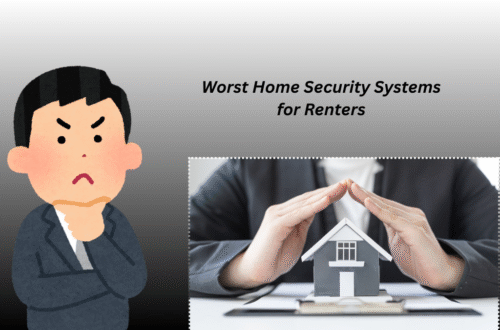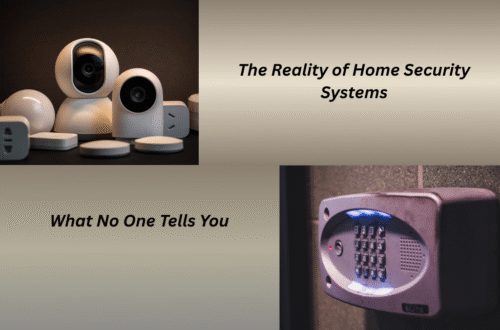
Common Invasions Against Renters that Made them Unsafe
Renters lack many resources and flexibility that are essential to help secure themselves and their families. Reports suggest that 74% of renters don’t have enough money to afford their single month’s housing and food expenses, 42% have less than $1000, and one out of four renting households has less than $200 in cash savings.
The same report suggests that in 2022, the renters with less than $20,000 income faced 1.2 million violent invasions. The higher the violence against them, the more they feel unsafe and are more prone to eviction. According to the report, violent victimization against renter is strongly related to their eviction. Even though wherever they go, they are still vulnerable to these threats and invasions until they take smart and advanced security measures that promise their safety.
The Alliance for Safety and Justice (ASJ) report depicts that renters are three times more prone to assaults than homeowners. Where the rise in rents leads to the financial crisis, the strict housing policies, and certain clauses in their lease agreements left renters unable to take steps for their security.
Renters who experienced theft, robbery, harassment, sexual assault, or gun violence need time to heal and recover, and still suffer from PTSD. They are obvious about integrating security systems in their homes and taking security measures to prevent any unfortunate incident in the future.
Recent Supreme Court decisions signal a growing recognition of the need to protect personal privacy in and around the home. This approach significantly benefits renters. In particular, the Court’s ruling in Florida v. Jardines offers strong legal grounding for extending Fourth Amendment protections to renters.
This section affirms that tenants have a legitimate and protected expectation of privacy in the shared spaces of their residential buildings. That’s why they have a critical aspect of rental security.
Common Invasions Against Renters
Renting out property in a metropolitan area comes with its concerns. Burglaries, theft, robberies, harassment, and assault make you feel unsafe in your own home. When it comes to the worst theft, burglary, and assault rates, these are the worst states in the United States;
- Texas
- Tennessee
- Mississippi
- Arkansas
- Alaska
- California
- Oklahama
Here are common invasions against renters that threaten their security:
The Master Key Break-Ins
In many rental units, especially in older apartment buildings, maintenance staff, former employees, or even prior renters may still have access to master keys or copied keys. A 2016 report by NBC Bay Area found that in some cities, up to 30% of break-ins in apartment complexes showed no signs of forced entry, suggesting inside access through duplicate or master keys.
Staged Maintenance or Inspection Scams
Criminals pretending to be maintenance workers or inspectors gain access to apartments. They are sometimes enabled by landlords who don’t vet their vendors properly. In Chicago (2022), a man posed as an HVAC repairman and gained access to multiple women’s apartments, later linked to harassment and theft cases. This happens as many states don’t require ID checks or background verification for third-party contractors entering rental units.
Digital Surveillance Abuse by Landlords
Landlords are installing smart home devices (Nest, Ring, etc.) that collect audio/video without the tenant’s knowledge, especially in shared areas like entryways or even inside the units. According to a 2021 EFF report, 1 in 5 tenants in smart apartments said they felt they were being constantly watched, and 12% suspected illegal recordings in their unit. A case reported where a California landlord was sued after a hidden WiFi camera disguised as a smoke detector was found in a female tenant’s bedroom.
Targeted Stalking or Assaults by Neighbors
Some renters become targets for stalking, harassment, or even sexual assault by neighbors or other tenants, especially in buildings with poor tenant screening. Reports from tenant unions in NYC and LA show a rise in complaints where victims said landlords ignored repeated safety concerns, especially when the accused was another paying tenant. If a landlord fails to address a safety hazard, they may be legally liable for resulting harm under “premises liability” laws in many states.
Push-In Attacks During Deliveries
Criminals follow delivery drivers (food, Amazon, etc.) and force their way in when renters open the door. The FBI has noted a rise in “push-in” style home invasions in multi-unit residences, especially where lobbies or entryways are unsecured. Many personal safety advocates now recommend speaking to delivery drivers through the door and requesting they leave packages or food outside.
Digital Home Invasions: Smart Locks & WiFi Hacks
Hackers can take control of smart locks, security cams, or home assistants (like Alexa) if poorly secured. According to Norton’s 2023 Cyber Safety report, 34% of renters in smart apartments experienced unauthorized access or device failures, some leading to physical break-ins. In Atlanta, a woman’s smart lock was hacked while she was out, allowing the intruder to enter and steal valuables, all without forced entry.
Unmonitored Entry by Cleaners or Property Staff
Renters in furnished units or Airbnbs often face cleaning staff or “pop-in” checks without notice or consent. Laws in many states don’t clearly define the rights of renters in short-term leases, allowing property managers or owners more access than long-term tenants.
Key Privacy Rights For Renters
- Renters have the right to enjoy a peaceful life without any disturbances. Landlord interference in their daily affairs, illegal access, switching off their vital supplies, or loud noise, all constitute forms of bothering renters.
- Renters have the right that the landlord must give them notice before entering the house. This is an advanced notice, 24-48 hours in advance, and it could be either written or verbal.
- Renters’ rights protect them from unlawful or illegal surveillance. Even if it is about the landlord, they must avoid such an invasion to maintain renters’ privacy.
- Landlords are bound to keep renters’ personal information confidential. They must not reveal or compel renters to reveal their private information.
- Renters have their right to change the locks to prevent unauthorized entry.
- Landlords cannot push renters for too frequent inspections, illegal access, or monitoring. Even if they take unauthorized access by using a spare key without the renter’s permission, it is an invasion of the renter’s privacy.
- The landlord can enter the house with advanced notification for making repairs, routine inspection, or showing the property to future tenants. They can also enter the property in case of emergency, such as fire, natural disaster, or if someone’s life is in danger. However, if they often break the access rules, this is considered trespassing, and renters can also file a complaint with the housing authorities.
Conclusion
The rise in invasions against renters is concerning enough to get serious about your security. These threats are inevitable, even if you live in a considerably peaceful neighborhood. That’s why stay alert and gear up your house/apartment with reliable and smart security solutions to stay safe without violating lease agreements.




2 Comments
Pingback:
Pingback: